Relationship

Letting Go With Grace: Emotional Tools for Closure
Letting go is never easy. Whether we are parting ways with a loved one, ending a relationship, leaving a job, or saying goodbye to a cherished chapter of life, the emotional weight can feel overwhelming. Yet, closure is essential for our emotional well-being. Without it, we carry unresolved grief, anger, regret, or longing that can seep into new relationships and experiences, holding us back from healing and growth.

Breakup Blues: How to Cope and Rebuild Your Self-Worth
A breakup often feels like a silent earthquake—unseen by others but devastating within. The pain doesn’t just come from the loss of a relationship, but from the crumbling of the life, identity, and future you built with another person. You may find yourself questioning your worth, doubting your value, and feeling isolated even when surrounded by people. In Indian society, where emotional expression is often discouraged and breakups can be stigmatized, this pain may feel even more overwhelming. But the truth is—while breakups may shake you, they do not define you. You are not broken; you are in a process of emotional reformation. And with the right tools, guidance, and support system, you can rebuild not just your self-worth but also your entire life narrative.

Healing After Heartbreak: A Mental Health Perspective
Heartbreak doesn't just break your heart—it can shatter your sense of identity, peace, and purpose. Whether the end was expected or abrupt, mutual or one-sided, short-lived or long-term, the aftermath often leaves people emotionally disoriented. In Indian culture, where societal expectations and family involvement in romantic relationships are prevalent, the pain is not just personal—it is public. Yet, very few are taught how to heal from emotional loss in a healthy, sustainable way.

How Depression Can Affect Your Relationship—And What You Can Do
Depression is not just an internal struggle—it ripples outward, affecting relationships, routines, and the emotional fabric that holds people together. When someone is dealing with depression, it's not only their world that becomes dim—it can cast a shadow over their most intimate connections too. In a country like India, where open conversations about mental health are still rare and love is often equated with endurance, depression within a relationship can become invisible, misunderstood, or misjudged.

When One Partner Struggles: Supporting Mental Health in Relationships
Relationships are a beautiful blend of shared experiences, emotional growth, and mutual care. But they also come with challenges—especially when one partner is struggling with their mental health. In a society like India, where mental health is still heavily stigmatized, couples often find themselves ill-equipped to handle psychological distress in their relationship.

Are You Really Listening? Improving Communication in Relationships
Communication is the lifeline of every meaningful relationship. Yet, in countless homes—particularly across India—couples, friends, and families frequently experience breakdowns not due to a lack of words, but because of a lack of listening. We often equate speaking with communicating and hearing with understanding. But true communication involves something far deeper: active, empathetic, and intentional listening.

Fighting Fair: How to Argue Without Breaking Your Bond — 5 Common Relationship Triggers and How to Manage Them
Arguments are an inevitable part of every relationship. But in India, where relationships often extend beyond two individuals to entire families, traditions, and unspoken expectations, conflicts can feel even more overwhelming. How do you fight fair with your partner without damaging the love you’ve built?

How to Practice Self-Care in an Indian Household Without Feeling Guilty
Self-care is often seen as a luxury in Indian households, where responsibilities and family expectations take priority over personal well-being. From childhood, we are taught to put others first, to serve, to sacrifice, and to constantly meet societal and family obligations. This deeply ingrained cultural mindset often makes self-care feel like an act of selfishness.

Employee Motivation 2.0: Modern Hacks vs. Traditional Methods
Sitting in his corner office, Amit, the CEO of a fast-growing tech firm, rubbed his temples in frustration. “We’re losing good people,” he muttered, scanning the latest resignation letter on his desk. “Our turnover is skyrocketing, productivity is slipping, and I can feel the low energy in the office. What’s going wrong?”

Motherhood and Mental Health: The Silent Struggles of Indian Mothers
Motherhood is often portrayed as a blissful journey filled with love and joy. However, behind the celebrations of bringing new life into the world, many mothers, especially in India, suffer in silence. The pressure to be a “perfect mother,” lack of emotional and social support, and the constant juggling between responsibilities take a toll on their mental health.

Parental Pressure and Mental Health: The Unspoken Struggle of Indian Youth
Parental expectations are a universal experience, but in India, they often come with immense pressure. From scoring high marks 📚 to securing a high-paying job 💼, the burden on Indian youth is immense. While parents want the best for their children, excessive expectations can take a toll on mental health, leading to anxiety, depression, and even suicidal thoughts.

The Mental Health Crisis Among Indian Students: What Can Be Done?
In recent years, the mental health crisis among Indian students has become a growing concern. The pressure to excel academically, social expectations, economic constraints, and personal struggles create a highly stressful environment that takes a toll on their mental well-being. While awareness about mental health is increasing, there is still a significant gap in access to proper care and support. Addressing this issue requires a collective effort from educational institutions, parents, policymakers, and mental health professionals.

How to Take Care of Your Mental Health in a Fast-Paced Indian Lifestyle Online Counseling in India: A Game-Changer for Mental Well-being
CareMe Health is committed to making mental healthcare accessible and stigma-free in India. Their expert therapists provide professional support through online counseling, helping individuals manage stress, anxiety, depression, and relationship challenges. Whether you need a listening ear, coping strategies, or deep therapeutic interventions, CareMe Health is here to guide you toward mental wellness.

Coping with Financial Challenges: Strategies for Mental and Emotional Well-Being
Financial challenges are a universal struggle, impacting not just your wallet but your mental and emotional health as well. Whether it's the stress of mounting debts, job insecurity, or the pressure to provide for your family, financial difficulties can take a significant toll on your overall well-being. While financial stability is an ideal goal, it's equally important to address the mental and emotional challenges that accompany financial strain. In this blog, we will explore strategies to manage these challenges and how platforms like CareMe Health can support you in navigating these turbulent times.

The Hidden Impact of Financial Stress on Mental Health and How to Manage It
Financial stress is one of the most pervasive yet under-discussed issues affecting mental health across the globe. Whether you're struggling with mounting debt, an unstable job, or the pressure of living paycheck to paycheck, the strain on your mental well-being can be profound. Unfortunately, financial stress is often ignored or minimized, leading to long-term emotional and psychological challenges. In this blog, we will explore the hidden impact of financial stress on mental health and provide practical ways to manage it, including how CareMe Health can support your journey toward emotional resilience and well-being.

Rebuilding Life After Loss: Practical Tips for Emotional Resilience
Loss is an inevitable part of life, and its impact can leave us feeling shattered, vulnerable, and emotionally drained. Whether it’s the loss of a loved one, a relationship, a job, or even a personal dream, grief can profoundly affect mental health and the ability to function. Rebuilding life after loss requires courage, persistence, and emotional resilience. This article explores practical strategies to foster healing and adapt to life after significant loss, highlighting the vital role of CareMe Health in supporting this journey.

Healing Through Grief: Understanding the Stages of Loss and How to Cope
Grief is an inevitable part of life, touching everyone at some point. It’s an emotional, physical, and psychological response to loss, whether that loss comes from the death of a loved one, the end of a relationship, losing a job, or missing out on opportunities. For many, grief is a solitary and isolating experience, leaving individuals overwhelmed, confused, and unsure of how to move forward.

Navigating Conflicts: Practical Insights from Couple Therapy for Lasting Love
Conflict is an inherent part of any relationship. While it is often viewed as something negative, conflicts can also be opportunities for growth, better understanding, and deeper intimacy when managed constructively. However, when conflicts are left unresolved or handled poorly, they can lead to emotional distance, resentment, and the eventual breakdown of relationships. Couple therapy offers a guided framework to help partners understand each other, navigate disagreements, and strengthen their bond for lasting love. This blog explores practical insights from couple therapy and the integral role CareMe plays in helping couples build stronger and more fulfilling relationships.

Rekindling Connection: How Couple Therapy Can Strengthen Relationships
Relationships form the bedrock of our emotional lives, offering love, companionship, and a sense of security. Yet, even the most loving partnerships face challenges. Miscommunication, unresolved conflicts, life stressors, or unmet expectations can cause emotional distance and strain between partners. When these issues persist, they can erode trust, intimacy, and happiness within the relationship. Couple therapy emerges as a proven method to address these challenges, helping partners navigate their differences and build a stronger, more connected relationship.

How Technology Fuels Procrastination and Tips to Combat Digital Distractions
Technology has revolutionized the way we live, work, and connect with others. However, it has also introduced a pervasive challenge: digital distractions. From social media notifications to endless scrolling on video platforms, technology often becomes a major contributor to procrastination. In this blog, we’ll explore the science behind how technology fuels procrastination, the psychological impact of digital distractions, and actionable strategies to regain control of your focus and productivity.

Loneliness and Mental Health: Why It’s More Than Just Feeling Alone
In an increasingly connected world, loneliness has emerged as a paradoxical epidemic affecting millions globally. While loneliness might seem like a simple feeling of being alone, its implications run deeper, affecting not just emotional well-being but also physical and mental health. In this blog, we delve into the profound connection between loneliness and mental health, explore its effects, and discuss how platforms like CareMe Health can provide a lifeline to those struggling with isolation.

Friendship Breakups: How to Handle Losing Friends and Moving Forward
Friendships are integral to our lives, especially during the teenage years when friends become a central part of our identity and support system. However, just as romantic relationships can end, friendships can also change or dissolve, leaving emotional challenges in their wake. A friendship breakup can be emotionally overwhelming, but understanding ways to cope and move forward can help make the process smoother.

The Long-Term Effects of Gaslighting: Healing and Rebuilding Confidence
Gaslighting is a form of psychological manipulation that causes someone to doubt their perceptions, emotions, or memories. Over time, gaslighting can erode a person’s self-worth and confidence, leading to profound and long-lasting effects on mental health. Though it’s often associated with romantic relationships, gaslighting can occur in various settings, including families, friendships, and workplaces. Understanding the toll it takes and how to heal from it is essential for anyone who has experienced this form of manipulation.
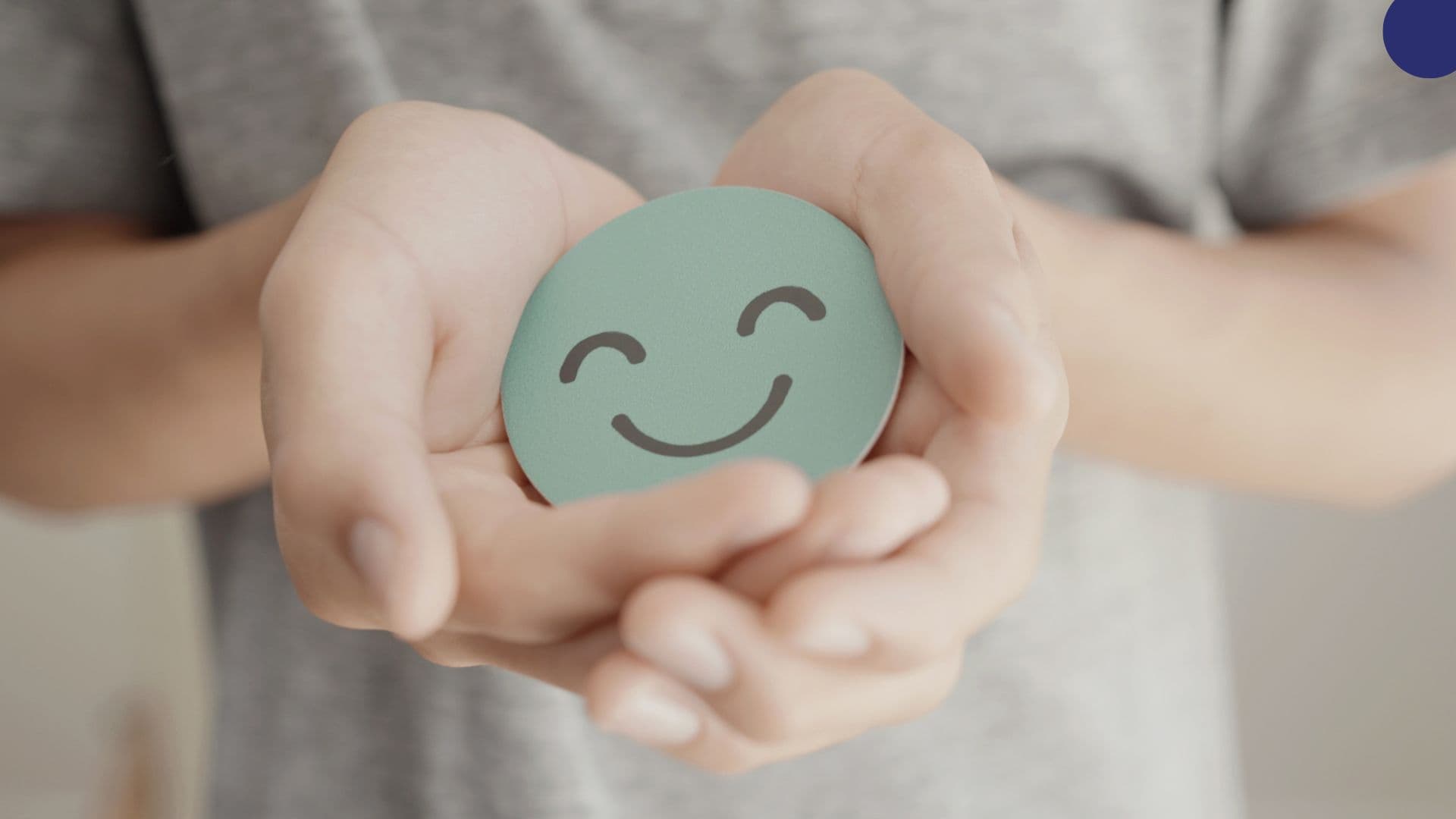
Why Prioritizing Your Mental Health Leads to Greater Happiness in All Areas of Life
In a world where success is often measured by external achievements, prioritizing mental health may seem secondary. However, research has shown that taking care of your mental well-being directly impacts your happiness, relationships, productivity, and overall quality of life. This is a critical area to consider, especially in our fast-paced society. Let's dive deeper into the connection between mental health and happiness and explore how making your mental health a priority can transform your life.

The Importance of Mental Health Breaks: How to Prevent Burnout During Exams and Deadlines
In the fast-paced world of academics, the pressure on students is immense. This is particularly true in India, where the academic system places a high value on scores, competitive exams, and rigorous study schedules. For students striving to meet these demands, burnout is a real and prevalent risk. Understanding the importance of mental health breaks can be crucial for sustaining both academic performance and overall well-being.

The Impact of Social Media on Mental Health: How to Stay Mentally Healthy Online
Social media has become an inseparable part of our daily lives, revolutionizing how we connect, share, and communicate. It offers endless opportunities to stay informed, find support, and build communities. However, there’s also growing concern about the adverse impact of social media on mental health. Whether it’s the pressure of curating the perfect life, exposure to negative content, or the addictive nature of endless scrolling, social media can take a significant toll on well-being.

Online Therapy for Expats: How Indians Abroad Can Access Culturally Sensitive Support
Living abroad as an Indian expatriate can be both an exciting and challenging experience. From adapting to a new culture to navigating a different social and work environment, expatriates often face unique mental health challenges. Feelings of isolation, homesickness, cultural shock, and the pressure to assimilate can lead to heightened stress and anxiety. For Indian expats, finding mental health support that is culturally sensitive and easily accessible becomes crucial.

Dealing with Burnout: How to Recognize and Recover from Chronic Stress
Burnout is more than just feeling stressed or overwhelmed. It’s a state of emotional, physical, and mental exhaustion caused by excessive and prolonged stress. Burnout often occurs when you feel overwhelmed, emotionally drained, and unable to meet constant demands. As it persists, it can lower your productivity and leave you feeling helpless, cynical, and resentful. With the rise in workload and constant connectivity in today’s world, especially post-pandemic, burnout has become a common issue among professionals, students, and caregivers.

Breaking the Stigma Around PTSD: How to Identify and Treat Post-Traumatic Stress Disorder
PTSD is a mental health condition that can develop after an individual experiences or witnesses a traumatic event. This event could be anything that causes intense fear, helplessness, or horror, such as natural disasters, accidents, war, or abuse. While it’s natural to feel stressed or fearful after such experiences, PTSD occurs when these feelings persist or worsen over time, interfering with daily life and relationships.

The Role of Family Support in Mental Health Recovery: How to Be There for Your Loved Ones
Mental health recovery is a journey that not only involves the individual struggling but also the people around them. Family support can be one of the most vital elements in helping someone recover from mental health challenges like depression, anxiety, addiction, or trauma. In a world where stigma around mental health still exists, having a supportive family can help break down barriers, provide much-needed understanding, and offer a stable foundation for recovery. This blog will explore why family support is crucial for mental health recovery, provide actionable ways to offer that support, and explain how CareMe Health can empower families to support their loved ones more effectively.
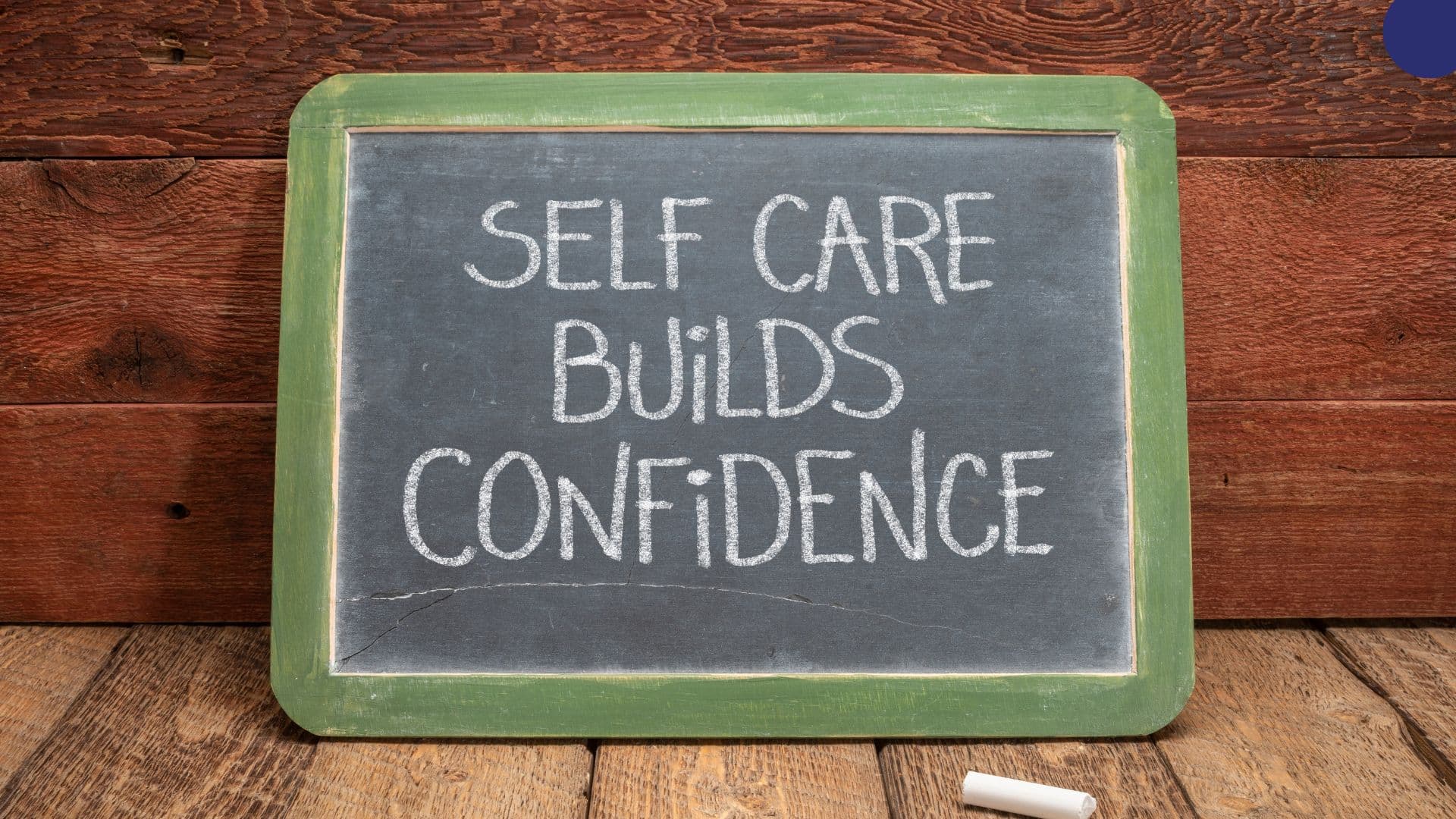
Mental Health and Self-Care: How to Build a Sustainable Routine for Your Well-Being
In today’s fast-paced world, maintaining mental health has become a crucial yet often neglected aspect of our overall well-being. The constant demands from work, family, and social obligations can drain energy and leave little time for self-care. Without a deliberate focus on mental well-being, it’s easy to become overwhelmed, leading to burnout, stress, and even mental health disorders such as anxiety or depression.

How Online Therapy Is Revolutionizing Mental Health Care for Busy Professionals
In today’s fast-paced world, many professionals struggle to maintain a healthy work-life balance, leaving little time to focus on their mental health. Balancing demanding careers with personal responsibilities often leads to stress, anxiety, and burnout, making it essential to have convenient and accessible mental health care options. Enter online therapy—a groundbreaking solution that is transforming the way busy professionals access mental health support.

The Science Behind Online Therapy: Does It Really Work?
In recent years, the rise of online therapy has transformed how people access mental health care. What was once predominantly a face-to-face interaction has now moved to digital platforms, making mental health services more accessible than ever. But the big question remains: Does online therapy really work? Backed by scientific research, the evidence strongly supports the efficacy of online therapy, often showing comparable results to traditional in-person therapy for many mental health conditions.

How Social Media Affects Mental Health: Tips for Healthy Use
In today's digital age, social media is an integral part of our daily lives. From connecting with friends and family to sharing moments and ideas, platforms like Facebook, Instagram, and Twitter have transformed the way we communicate. However, while social media offers numerous benefits, it also has a profound impact on mental health that warrants attention. Understanding both the positive and negative effects can help us navigate our online interactions more mindfully.

Mental Health for Students in India: Overcoming Academic Pressure
Academic pressure is a significant concern for students in India, where societal expectations, competition, and high-stakes exams weigh heavily on young minds. This pressure can lead to anxiety, depression, burnout, and other mental health challenges if not addressed effectively. Understanding how to manage academic stress while focusing on overall well-being is essential for students navigating the demanding educational landscape.
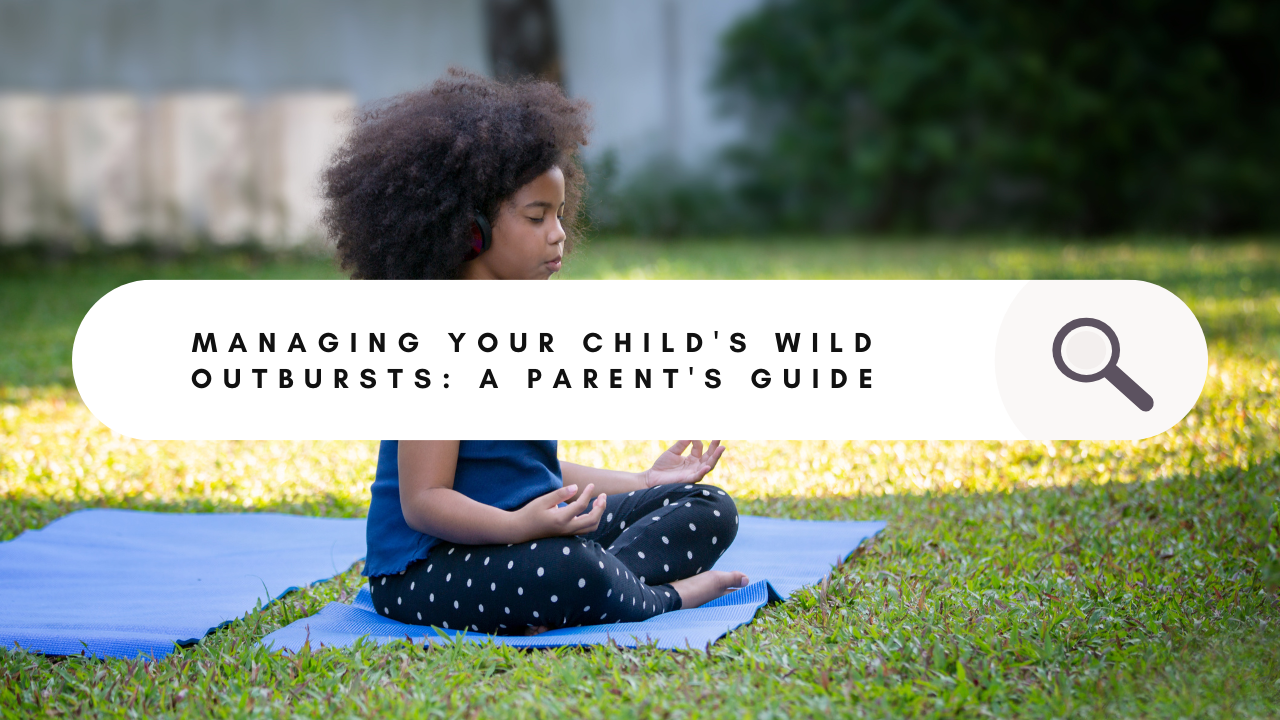
How to Calm Your Child's Wild Outbursts
Parenting is both a joyous and challenging journey, and dealing with wild outbursts from children can be particularly stressful. These outbursts, often characterized by intense and sometimes aggressive behavior, can stem from a variety of sources. Common causes include overwhelming emotions, lack of sleep, hunger, and frustration with communication or environmental constraints. For younger children, such outbursts might be part of normal development as they learn to regulate their emotions. However, frequent or very intense outbursts might indicate underlying issues such as stress, anxiety, or other emotional challenges.
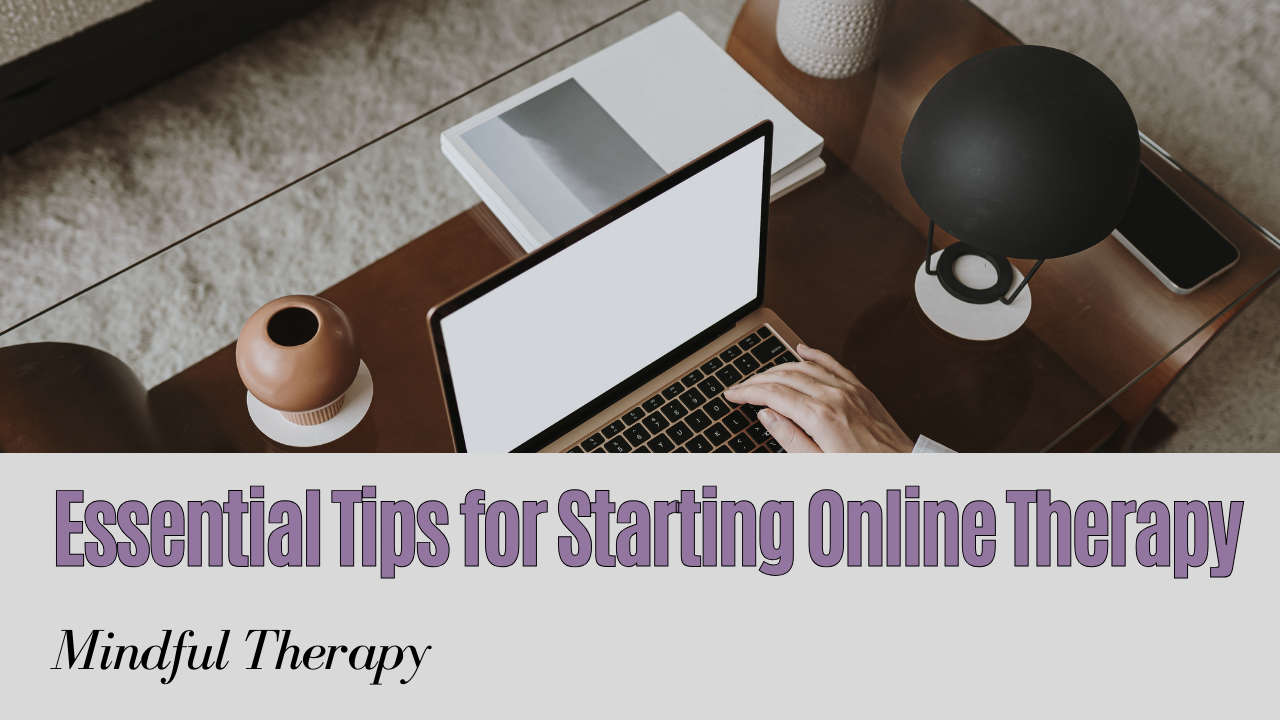
Essential Tips for Starting Online Therapy in India
In recent years, India has witnessed a significant shift in the way mental health is perceived and addressed. Once shrouded in stigma and silence, the conversation around mental wellness is now gaining momentum, reflecting a growing awareness and acceptance across the nation. This change is not just about recognizing mental health issues but also actively seeking solutions that are accessible, convenient, and effective.
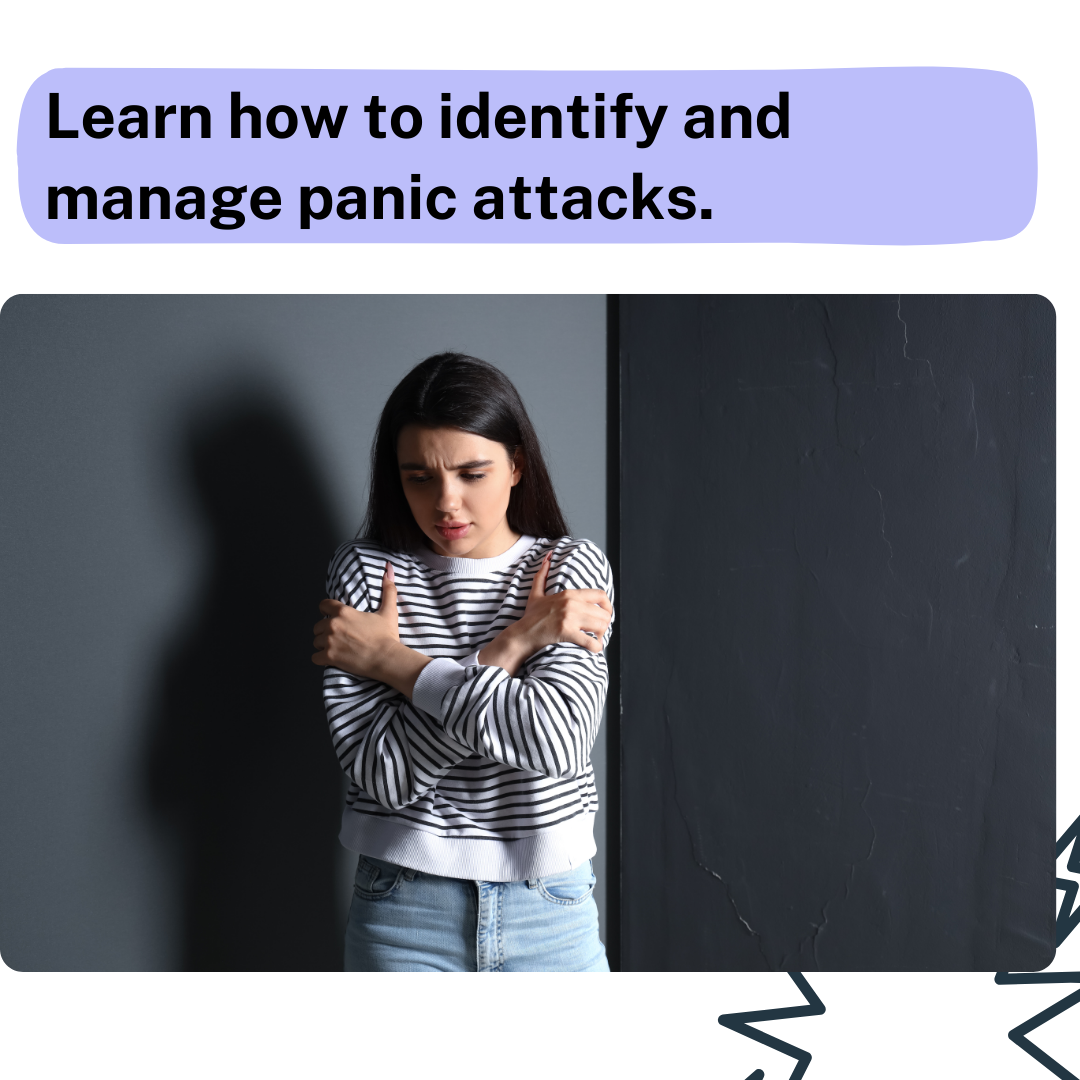
Recognizing the Signs of Panic Attacks
Panic attacks are intense periods of fear or discomfort that come on suddenly and peak within minutes. These episodes can occur unexpectedly or in response to a trigger, such as a feared object or situation. Understanding the nature of panic attacks, their symptoms, and common triggers is crucial for effective management and treatment.
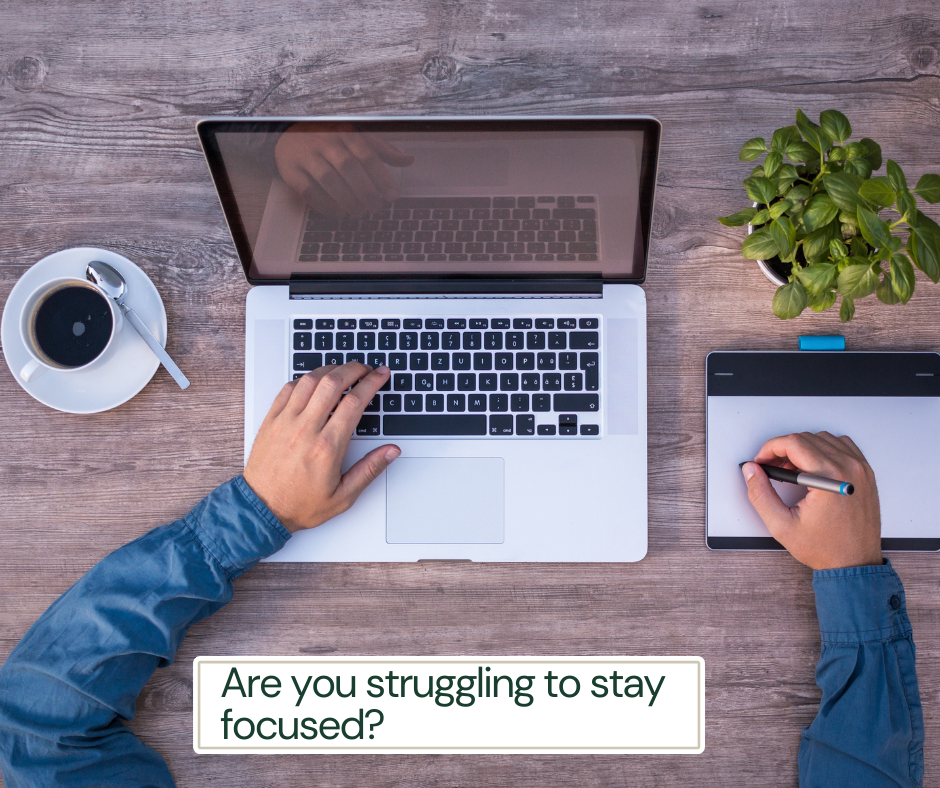
Struggling to Stay Focused? Tips to Improve Concentration
Understanding the neurological underpinnings of concentration and focus is crucial in addressing the challenges associated with maintaining attention in today's distraction-filled environment. The brain's prefrontal cortex, often referred to in neuroscience as the center for executive functions, plays a pivotal role in our ability to concentrate. This region orchestrates attention, decision-making, and problem-solving, making it the linchpin of focus. Neurotransmitters like dopamine and norepinephrine also significantly influence our concentration levels, affecting our alertness and ability to concentrate.
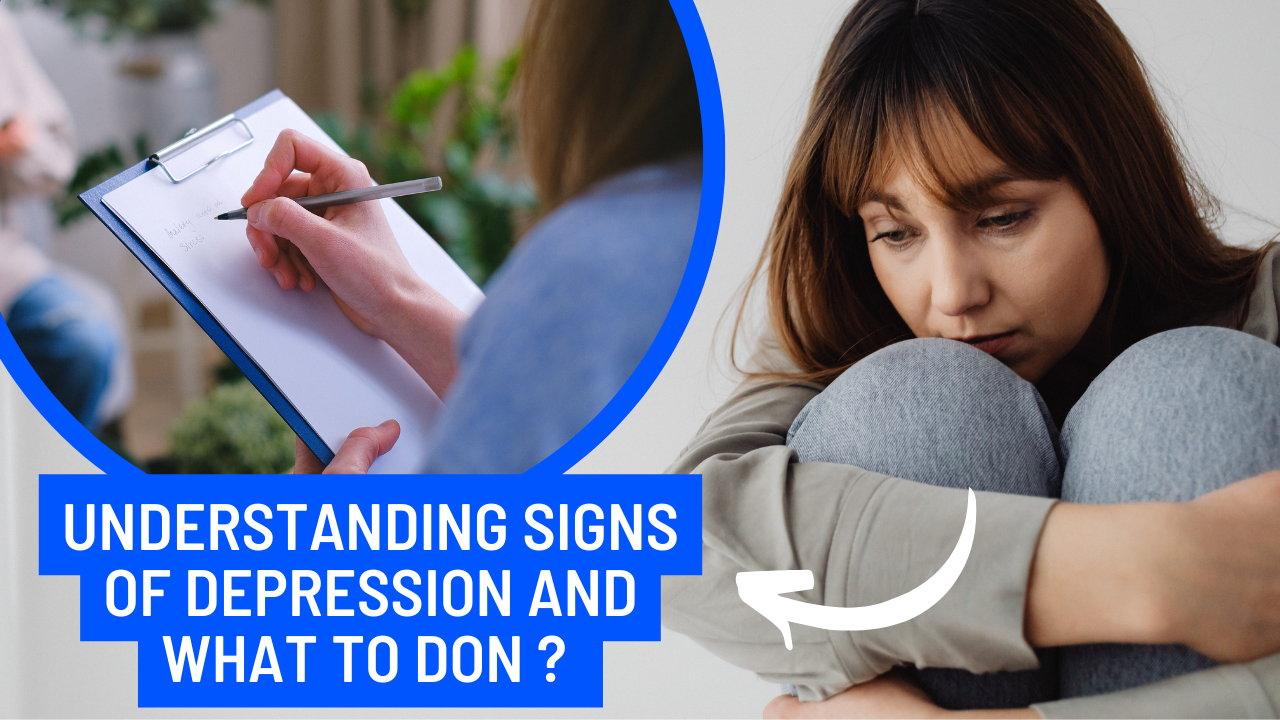
Understanding Signs of Depression and What to Do
Depression is a common but serious mood disorder that affects how you feel, think, and handle daily activities. It's important to distinguish depression from the occasional feelings of sadness or mood fluctuations everyone experiences. Depression involves persistent feelings of sadness and loss of interest that last for two weeks or more, significantly interfering with daily work, school, social activities, and family life. This condition goes beyond the realm of normal emotional responses and often requires professional treatment.
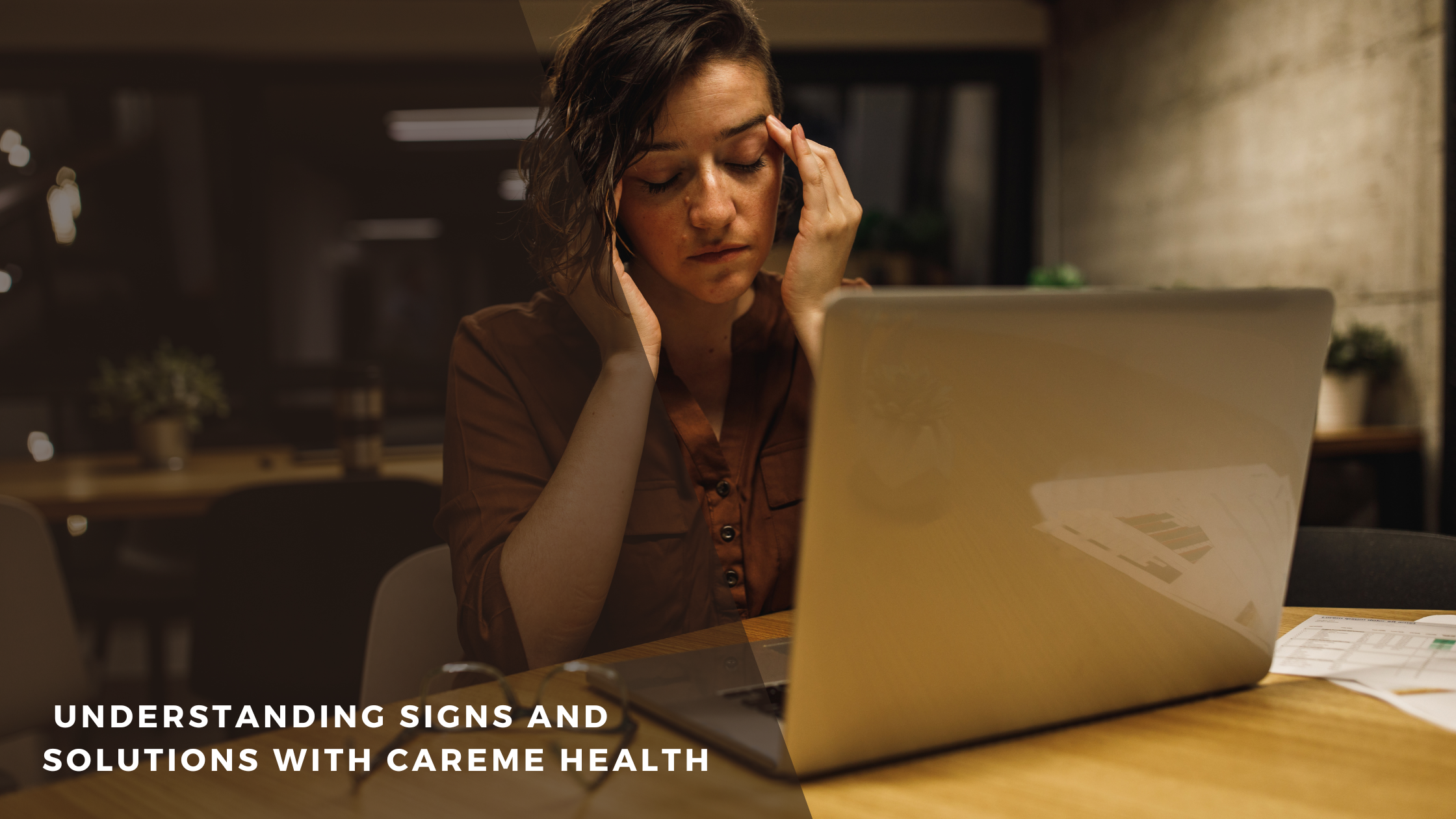
How to Tell If You're Stressed: Understanding Signs and Solutions with Careme Health
In today's fast-paced world, stress has become a common companion for many of us, weaving seamlessly into the fabric of our daily lives. This phenomenon holds especially true in the bustling life rhythms of India, where rapid urbanization, competitive work environments, and evolving societal expectations contribute to an ever-increasing stress burden among its population. Understanding stress, its origins, and its potential impacts on our physical and mental well-being is more crucial now than ever.
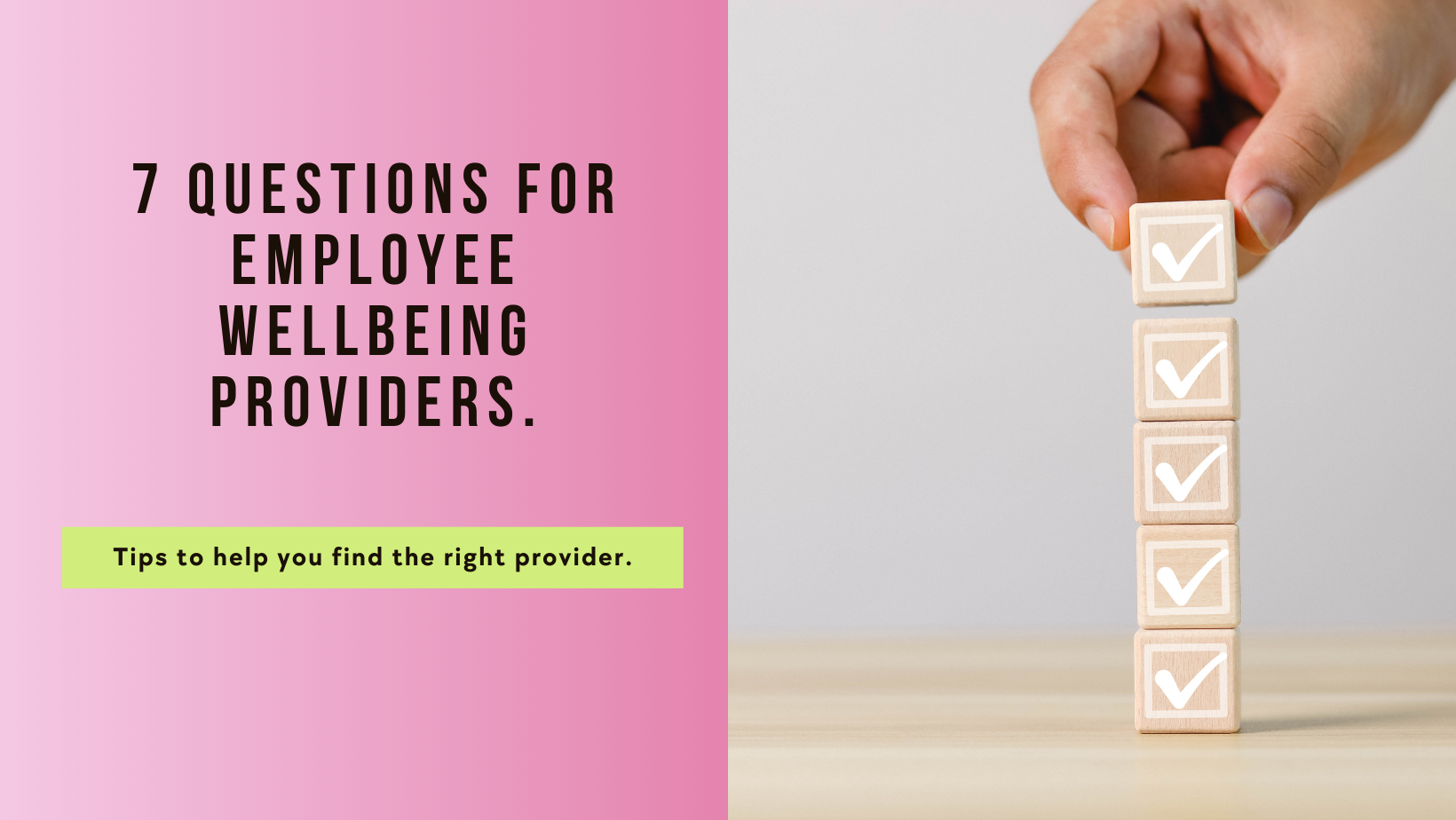
7 questions you should ask every employee wellbeing provider
7 questions you should ask every employee wellbeing provider Selecting an employee well-being provider is a critical decision for organizations committed to fostering a healthy and productive workplace. With the growing awareness of mental health in India, companies are increasingly seeking comprehensive solutions like CareMe Health to support their employees' well-being. When evaluating potential providers, asking the right questions can guide you to make an informed choice that aligns with your organization's values and needs. Here are seven essential questions to consider, backed by insights from studies and real-world practices.
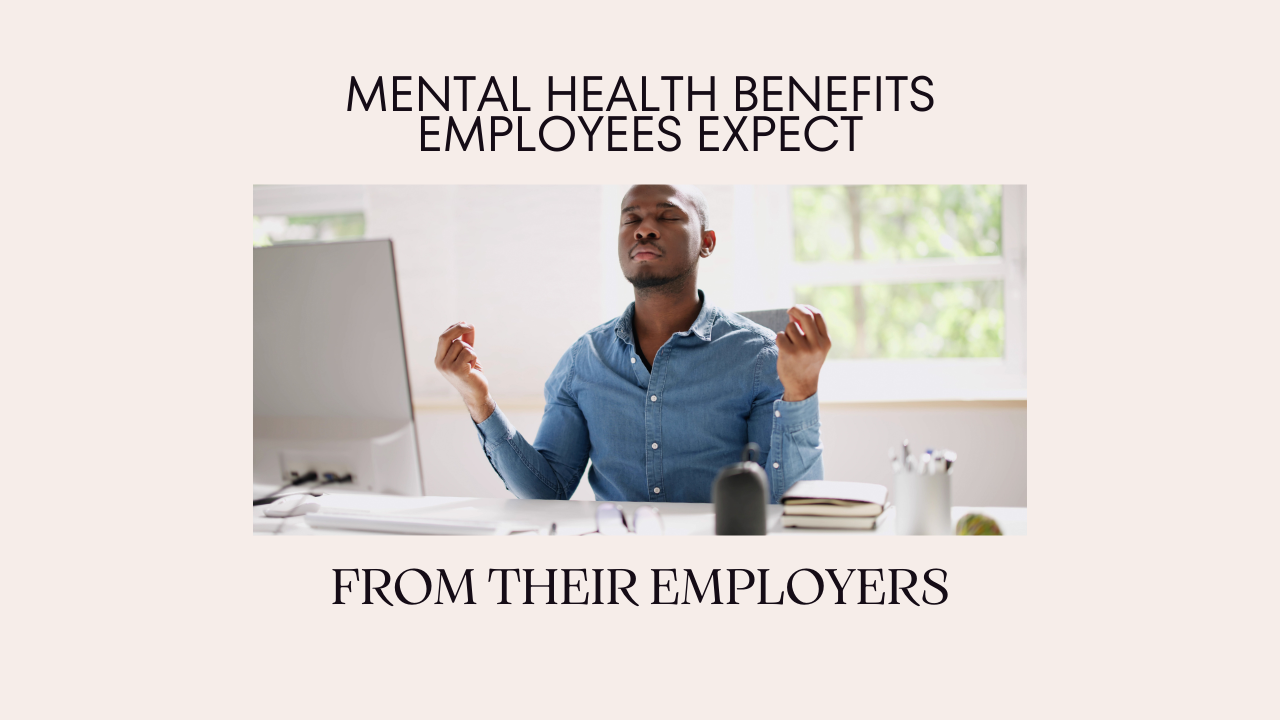
The mental health benefits employees expect from their employers
The Mental Health Benefits Employees Expect from Their Employers As we navigate the complexities of the modern workplace, the importance of mental health support has never been clearer. Employees across India are seeking workplaces that not only acknowledge but actively support their mental well-being. Here's what employees are looking for and how CareMe Health is meeting these needs.
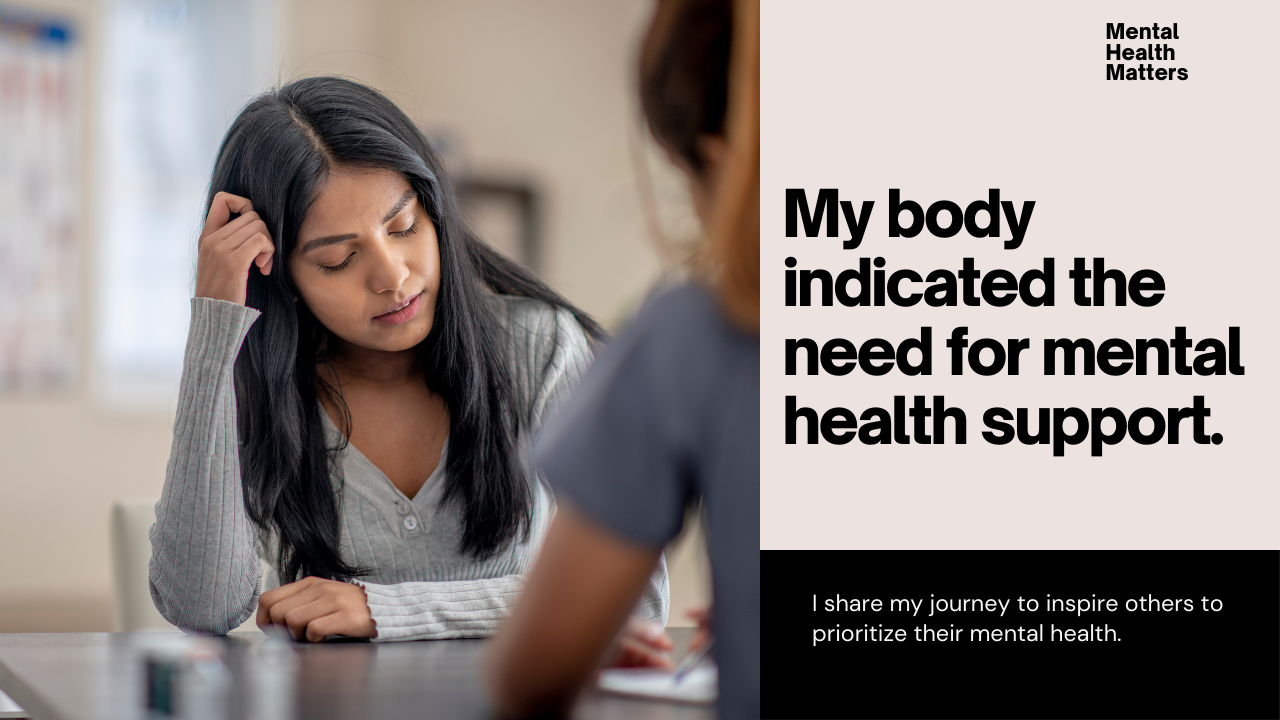
How My Body Showed Me I Needed Mental Health Support
In a world that moves at breakneck speed, it's easy to attribute our recurring headaches, sleepless nights, or that inexplicable tightness in our chests to the physical demands of our daily routines. We often dismiss these symptoms as mere byproducts of our busy lives, overlooking the possibility that our bodies might be signaling something deeper. This oversight is a common narrative, underscoring a universal truth: the intricate and often unnoticed connection between our physical well-being and mental health.
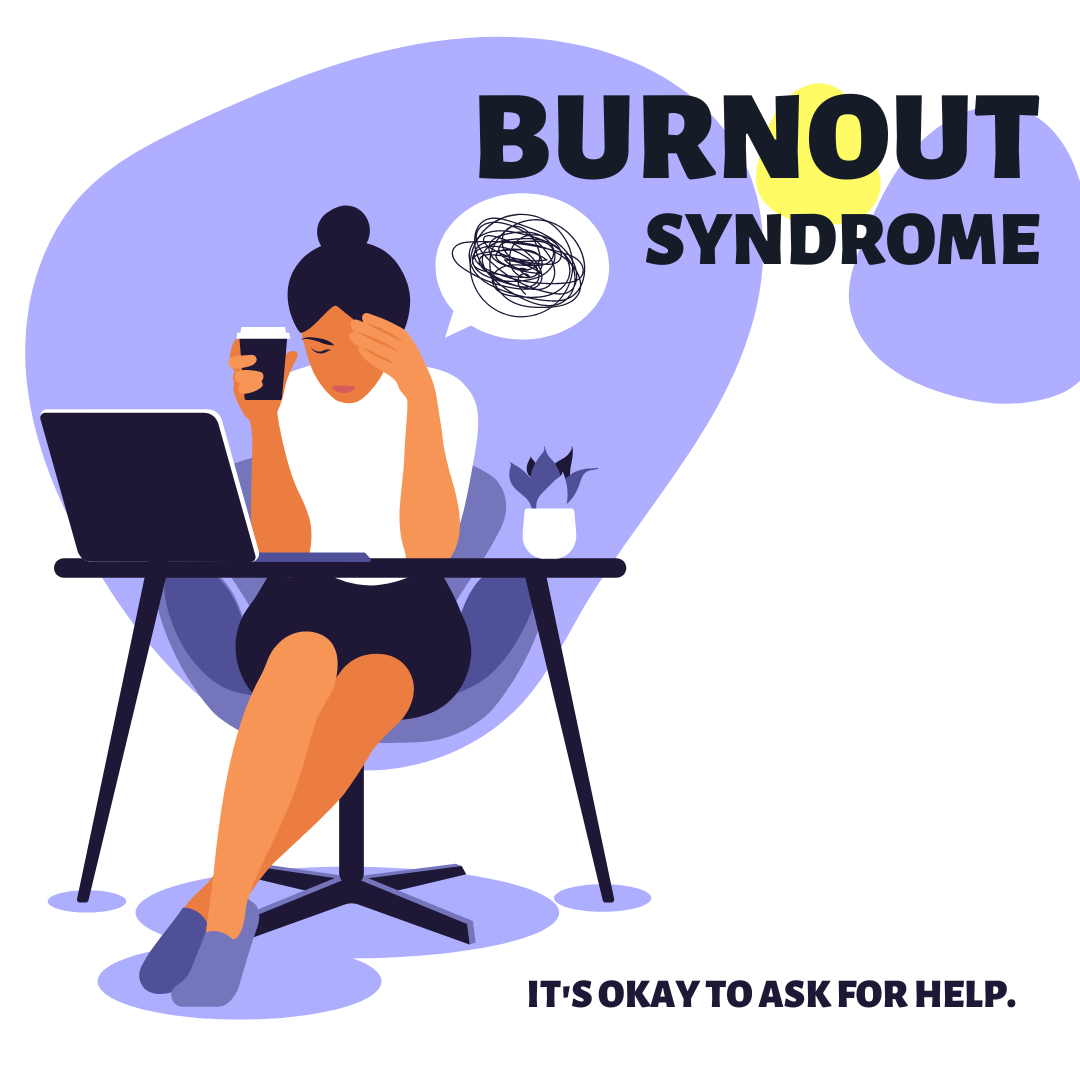
Tackling Employee burnout
Tackling Employee Burnout: The CareMe Health Approach In the vibrant yet demanding professional environment of India, employee burnout has become an increasingly common phenomenon, affecting productivity, mental health, and overall workplace harmony. The relentless pursuit of success, coupled with the fast-paced nature of modern work life, can lead to chronic stress, emotional exhaustion, and a diminished sense of personal accomplishment—hallmarks of burnout. CareMe Health emerges as a beacon of support in this scenario, offering a suite of features designed to address and alleviate the multifaceted aspects of burnout.
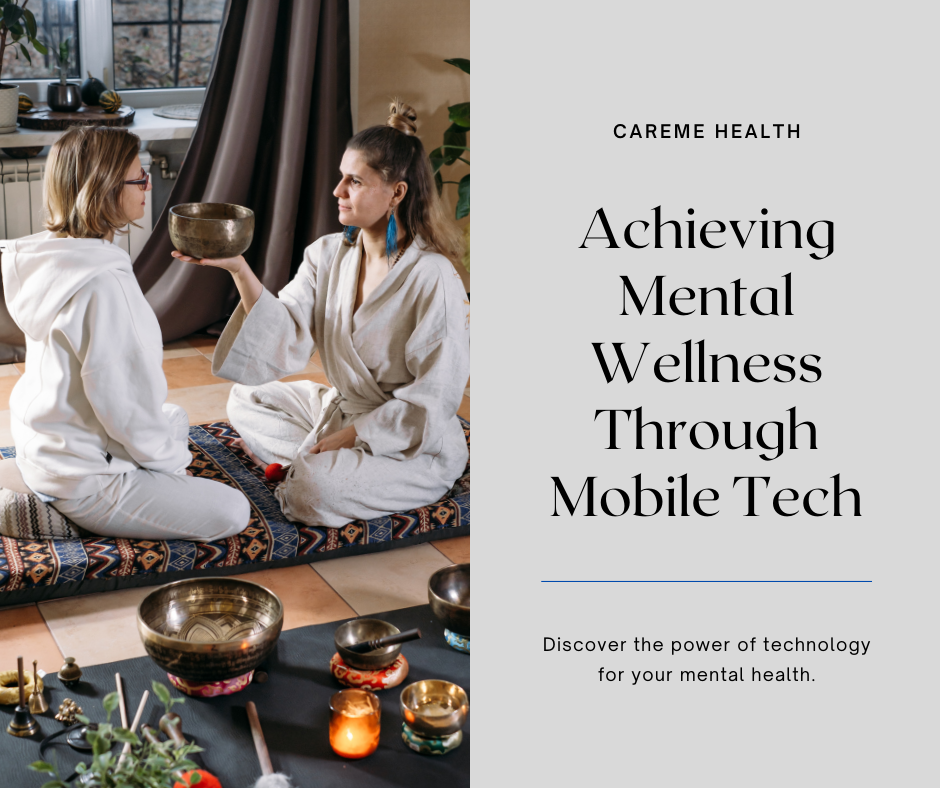
Mental health care and mobile tech: How CareMe achieves the magical mix
Mental Health Care and Mobile Tech: The Magical Mix of CareMe Health In today's fast-paced world, where the lines between physical and digital realms increasingly blur, mental health care has found a new ally in mobile technology. CareMe Health, an avant-garde mental health startup based in India, is at the forefront of this revolution, offering a harmonious blend of traditional care principles and cutting-edge technology. Let's explore how CareMe Health
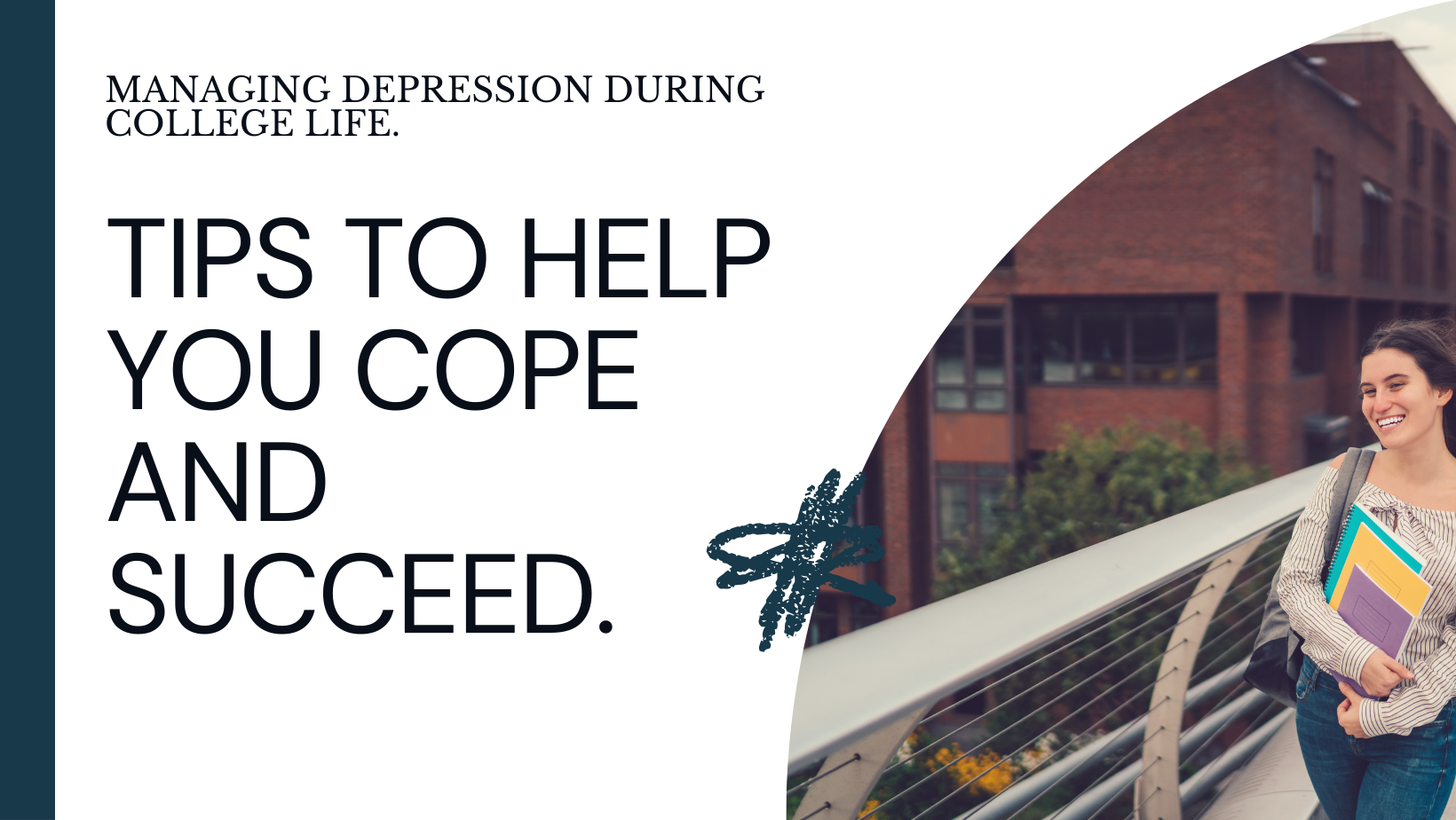
College Blues Getting You Down? Tips to Manage Depression During Studies
College Blues Getting You Down? Tips to Manage Depression During Studies College is a time of exploration, learning, and growth. But for many students across India, it's also a period marked by stress, anxiety, and sometimes, depression. The transition to college life, coupled with academic pressures and personal adjustments, can be overwhelming. If you're feeling the college blues, you're not alone. Here are some actionable tips to help you manage depression during your studies, with a special focus on how CareMe Health can support you on this journey.
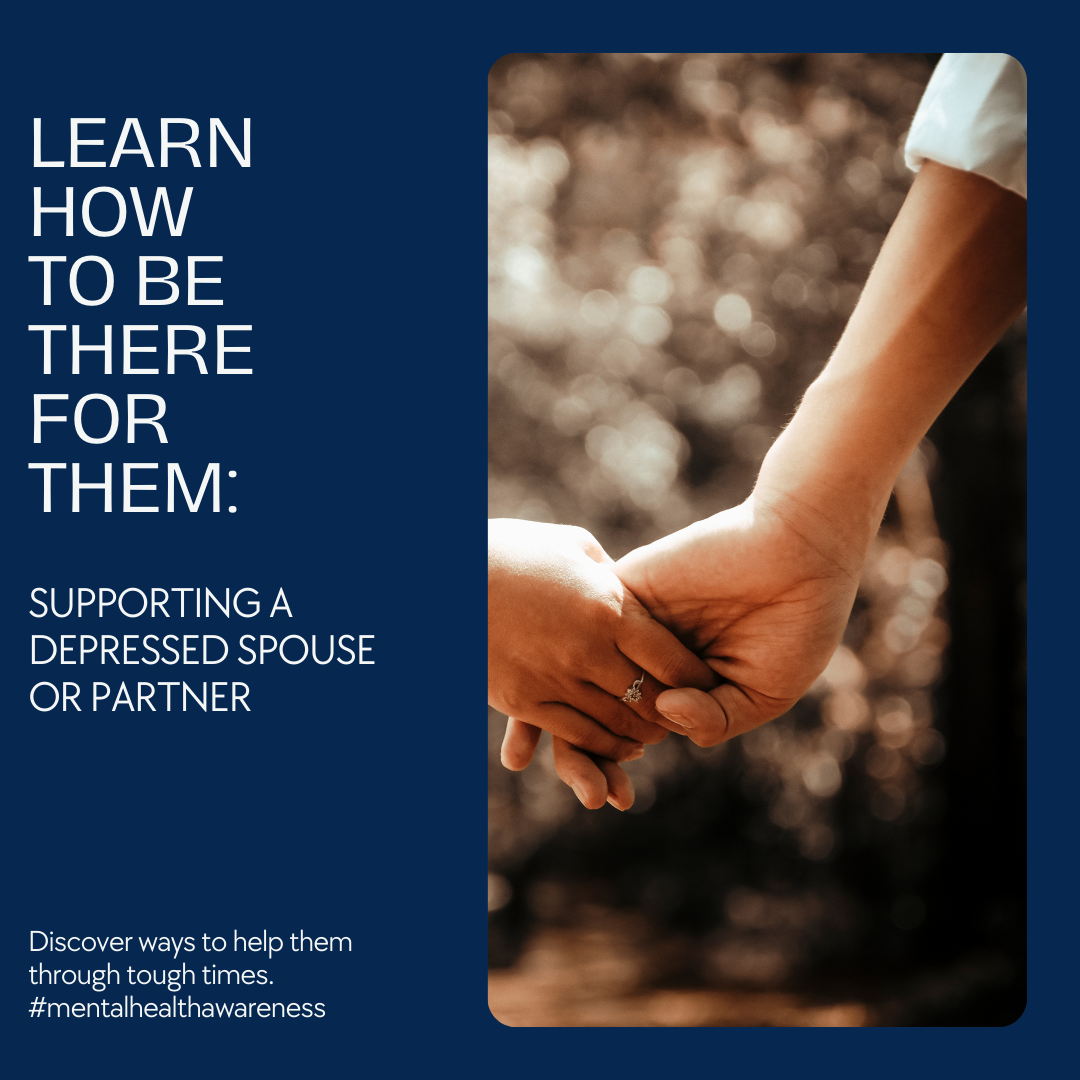
Supporting a Depressed spouse or Partner: Ways to Be There for Them
Supporting a Depressed Spouse or Partner: Ways to Be There for Them Witnessing a loved one struggle with depression can be heart-wrenching. In the intricate tapestry of Indian society, where relationships are the cornerstone of life, the impact of a partner's depression not only affects them but also reverberates through the entire family. Understanding how to support a depressed spouse or partner is crucial in aiding their journey toward healing while also maintaining your well-being.
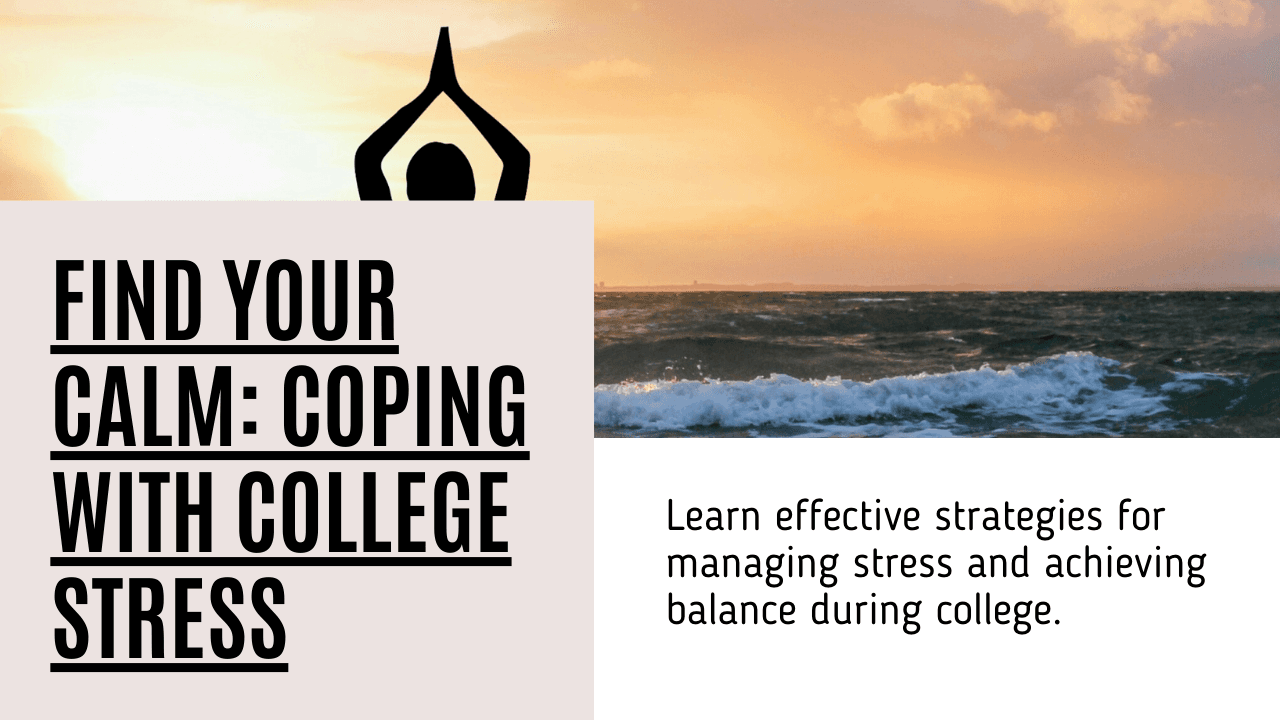
College Got You Stressed? Beat the Pressure and Find Your Calm
Navigating college life, with its myriad of challenges and opportunities, can often feel like a high-wire act, especially for students in India. The transition from school to the more autonomous environment of higher education can be exhilarating yet daunting, bringing with it academic pressures, career decisions, and personal growth experiences. In this context, managing stress becomes not just beneficial but essential for holistic well-being and academic success. CareMe Health, a pioneering mental health startup in India, offers a range of features designed to support college students in their journey towards stress management and mental wellness.

Spouse or Partner Stressed Out? Simple Tips to Support Them During Tough Times
When the dynamics of relationships intertwine with the complexities of modern challenges, stress can easily find its way into our lives and the lives of our loved ones. When your spouse or partner is navigating through tough times, finding the right way to support them becomes paramount. This blog offers simple yet effective tips to help your significant other, with CareMe Health playing a pivotal role in this supportive journey.